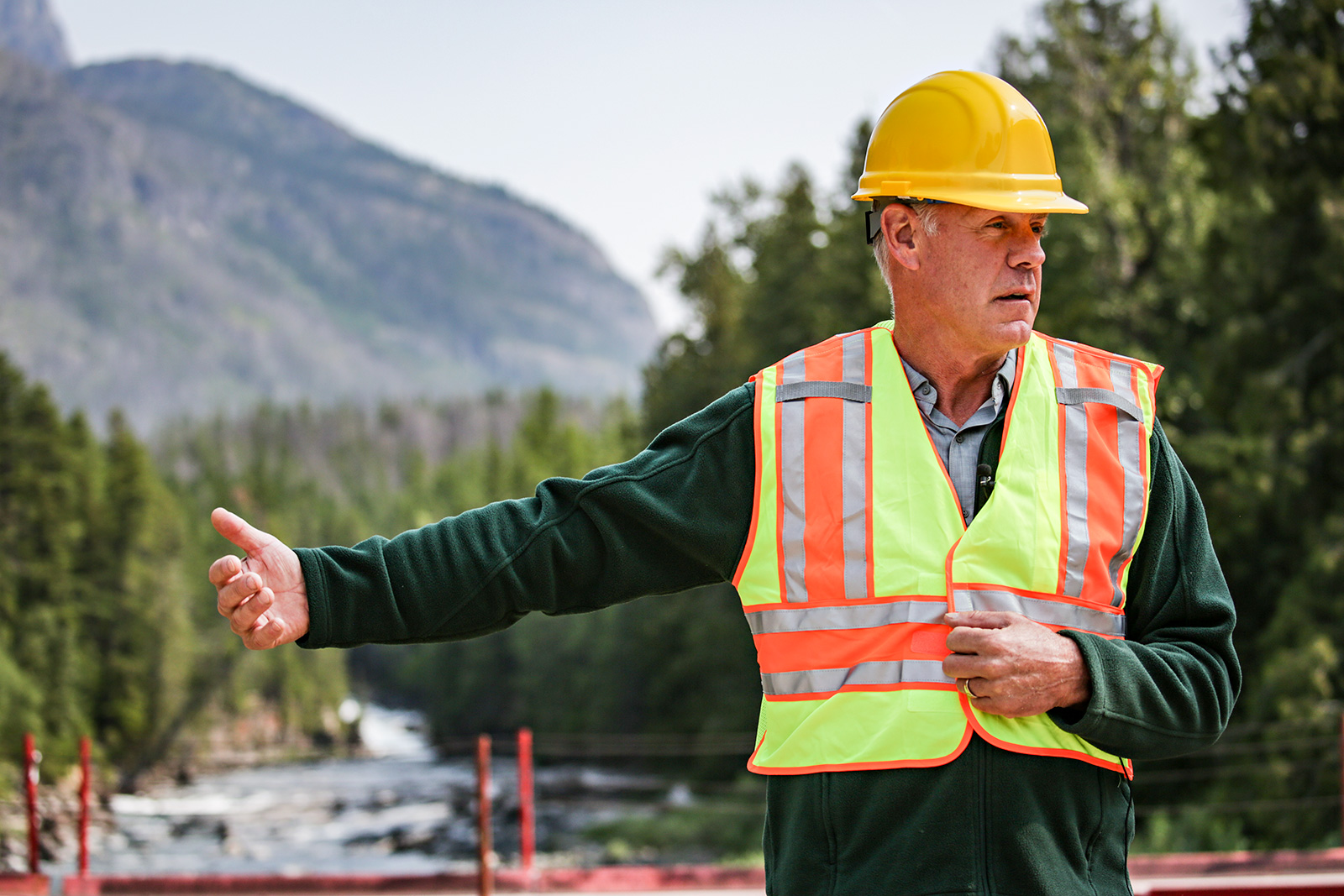Western Montana U.S. Rep Ryan Zinke, a Republican up for re-election this year, announced this week that he’s sponsoring bipartisan legislation to restrict the transfer of federal lands to other owners.
Representatives from national and statewide sporting and conservation organizations joined the third-term congressman at an event in Bozeman on Monday, voicing support for the legislation Zinke is developing with a Democratic congressman from New Mexico.
“Public lands must remain public, and the federal government has a responsibility to manage and ensure access to those lands,” Zinke said in a statement.
Critics, including the likely Democratic nominee for Zinke’s seat, Monica Tranel, described the bill as an election season “publicity stunt.”
As currently drafted, the bill would prohibit the Interior Department, which Zinke formerly led, from selling parcels of federal land larger than 300 acres if they’re publicly accessible via road, trail, easement or waterway. A dozen exceptions are incorporated into the bill, including carveouts for exchanges made with congressional approval, authorized for transfer under the Federal Land Policy and Management Act, or involving some federal land in Nevada and Alaska.
“As [Interior] Secretary I prioritized opening up land-locked parcels of public lands and expanding hunting and fishing opportunities on federal lands,” Zinke said. “The Public Lands in Public Hands Act is the next step in ensuring our public lands are publicly accessible for future generations.”
Zinke is working with U.S. Rep. Gabe Vasquez on the measure. Vasquez said in a quote included in Zinke’s statement that he and Zinke “both know that ensuring access to our public lands crosses party lines.”
Patrick Berry, President and CEO of Backcountry Hunters and Anglers said in the statement that the legislation “would help to ensure our hunting and angling traditions can continue for future generations.” A spokesperson for Trout Unlimited echoed that sentiment, describing the bill as a “safeguard” for cold-water fisheries and public access.
The bill was also celebrated by Joel Webster with the Theodore Roosevelt Conservation Partnership, who referenced “high-value public land tracts” that are “sometimes targeted for sale” in his comment. Other supporting groups include the Boone & Crockett Club, Rocky Mountain Elk Foundation, Wild Sheep Foundation and the Montana Outfitters and Guides Association.
Elected officials’ positions on conservation and access to public lands are an issue of perennial voter interest in Montana, where 29% of land is in federal ownership. In January, 41% of registered Montana voters polled by Colorado College’s State of the Rockies poll said issues involving clean water, wildlife and public lands are a “primary factor” they weigh when deciding whether they’ll support an elected public official.
The bill is still very much early stage legislation. To become law in the current session of Congress, it would need to pass out of an as-yet undecided U.S. House committee, secure votes from a majority of lawmakers in the Republican-controlled House and Democrat-controlled Senate, and then be signed by President Joe Biden.
Tranel and other critics of the bill questioned Zinke’s motivations and fealty to federal land ownership.
Tranel, who ran against Zinke in 2022 and is the only Democrat who has filed campaign finance paperwork to run against him this year, called the bill a “publicity stunt” Zinke is using “to distract from the fact that he has done nothing in Congress for Montana.”
“Zinke’s bill allows the large land swaps that have happened in places like the Snowy Mountains and the Crazies, to benefit large private landowners who want to close off public access to Montanans for hunting and fishing,” Tranel’s campaign wrote in an email. “While I’m in Congress, I’ll work hard to ensure all Montanans have access to all our public lands.”
Montana Conservation Voters, a politically active nonprofit that typically endorses Democrats in state and federal races, also expressed skepticism toward the announcement. MCV Executive Director Whitney Tawney said the timing of the announcement “feels very political” and said she’s wary of the exceptions incorporated into the measure.
“We need to hold our elected officials to their records and their actions, because, unfortunately, during political season people run their mouths and say anything to get re-elected or elected,” Tawney said. “Under his leadership as Secretary of the Interior, we watched [Zinke] take away public land protections across the United States, and that’s quite concerning.”
Tawney pointed to Zinke’s reduction of the Bears Ears and Grand Staircase-Escalante national monuments during his two-year tenure as President Donald Trump’s Interior Secretary.
The bill has been assigned to the House Natural Resources Committee and the House Agriculture Committee.
This story originally appeared in the Montana Free Press, which can be found online at montanafreepress.org.
